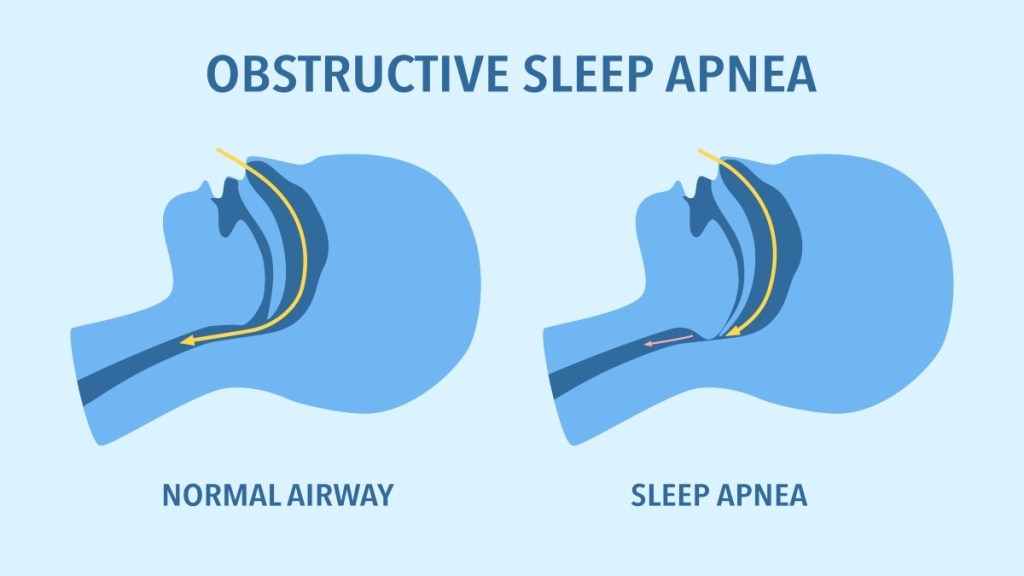This Simple Timing Trick Can Help Stop Someone From Snoring, Top Sleep Expert Says
Plus learn what sleeping position blocks overnight sawing — and which makes it worse

You likely don’t spend much time during your busy day pondering how to stop someone from snoring. But chances are you launch into a midnight brainstorming session when you’re awoken by your partner’s buzzsaw-like noises (or if you’ve been told you’re the bedroom buzzsaw).
Snoring is usually annoying, but it isn’t always harmful. “Light or inconsistent snoring can be benign and occur in healthy people who don’t have any underlying health issues,” says Chelsie Rohrscheib, PhD, head sleep expert and neuroscientist at Wesper. On the other hand, “chronic or labored snoring may be a symptom of a serious issue such as sleep apnea,” she adds.
In either case, at-home methods to halt the honking are a good place to start. Here are five easy remedies that can help stop mild snoring, plus what to do if DIY strategies aren’t cutting it.
Common causes of snoring
We all know a snore when we hear it. But what is it, exactly, that creates that grating noise? Snoring happens when a person’s airway becomes partially blocked during sleep. “That causes of vibration of the soft tissues in the throat, which results in the sound of snoring,” explains Lauri Leadley, CSSH, a clinical sleep educator and the founder and president of Valley Sleep Center in Phoenix, AZ.

That can happen for a number of different reasons. Common culprits include:
- Aging. Age-related muscle loss can cause your airways to shrink. This increases the odds of a blockage that leads to snoring. In fact, nearly 40% of adults over 60 snore, research shows.
- Your sleep position. Sleeping on your back can up the odds for snoring. The reason? It allows the soft tissues in your upper airway, like your tongue, to block your throat, explains Dr. Rohrscheib.
- Alcohol use. Drinking in the hours leading up to bedtime “relaxes the muscles in the upper airways and makes us sleep deeper than usual, placing us at higher risk for snoring,” Dr. Rohrscheib says.
- Congestion. As if a stuffy nose from a cold or seasonal allergies wasn’t unpleasant enough, it can also contribute to airway blockages that make you more prone to snoring. (Learn how to tell if you have a cold or allergies.)
- Weight. Being overweight or obese increases the amount of soft tissue in your airways. In turn, this can increase the chance for blockages. Indeed, up to 70% of people with snoring disorders like sleep apnea are obese, a study in Hypertension shows.
Underlying medical issues can cause snoring
While the culprits above are often responsible for snoring, sometimes overnight “sawing” is caused by an underlying health condition. The most common is sleep apnea, a sleep disorder where breathing starts and stops throughout the night. This can cause a person to snore loudly and wake up frequently, often without even knowing it. (Sleep apnea can make you wake up dizzy, too.)

Things like hypothyroidism, enlarged adenoid glands or a nasal blockage like a deviated septum can also be to blame. And since you can’t always tell what’s causing your snoring, if the problem is happening regularly, it’s worth scheduling a visit with your doctor. (Click through to learn how ashwagandha can help heal your thyroid.)
Do I snore?
You can hear your partner snoring loud and clear, of course. (And if they don’t believe you, you can record the snoring on your phone and play it back for them in the morning.) But if you suspect that you might be the one making the nighttime noises, paying attention to daytime symptoms can clue you in, say Leadley and Dr. Rohrscheib.
According to them, snorers are more likely to wake up with:
- Dry mouth
- Intense thirst
- Sore throat
- Headaches
- Daytime fatigue or trouble concentrating, especially in the case of sleep apnea
How to stop someone from snoring
These easy tricks help reduce or prevent mild airway blockages that can lead to snoring. That makes them a great first step to silencing (or at least lowering the volume of) an unwelcome midnight symphony. Still, you should let your doctor know if home measures aren’t cutting it, or if you or your partner are having frequent, severe snoring.
“It’s important to understand why the snoring occurs, and then diagnose and treat from there,” Leadley says. Not addressing the obstruction can cause bigger health problems like daytime fatigue. Or in the case of untreated sleep apnea, it can even increase your risk diabetes, heart attack or stroke, Leadley explains.
To stop snoring, try one (or more!) of these easy fixes:
1. To stop snoring, sip a cuppa chamomile
A nightcap can be a nice way to relax in the evening, but it’ll up the odds of snoring. Instead, consider swapping it out for a booze-free beverage. “Avoiding excessive alcohol intake and avoiding alcohol for at least three hours before sleep reduces the risk for snoring,” Dr. Rohrscheib confirms. A better evening sipper? Chamomile tea. The relaxation-promoting effects can help you doze off up to 16 minutes faster, found a study in BMC Complementary Medicine and Therapies. (Click through to learn how chamomile tea can help you tame sleep-sapping nighttime hot flashes, too.)

2. To stop snoring, stick on a nasal strip
If you suspect snoring is happening from congestion caused by a cold or allergies (like if the snoring flares up on bad allergy days or when you’re sick), wearing an over-the-counter nasal strip while you sleep can make a difference, found an Allergy, Asthma, & Clinical Immunology study. “It may reduce snoring by improving the flow of air,” Dr. Rohrscheib explains. Try Clear Passage Nasal Strips.
3. To stop snoring, take allergy meds at night
Pollen counts making your allergy symptoms flare like crazy? Get into the habit of taking your allergy meds before bed to help you stop snoring. Or if you don’t usually take allergy meds, consider adding one to your nighttime routine, recommends sleep medicine expert and clinical psychologist Michael Breus, PhD.
“Even if you don’t need them during the day, they can make a difference at night when our breathing is more impacted,” he explains. One good option: an over-the-counter antihistamine like Zyrtec. It kicks in faster than other allergy meds. Plus it’s the most likely to cause drowsiness, so you might doze off a little easier.
Nasal sprays are another option to help you stop snoring, Dr. Rohrscheib says. Some have antihistamines that reduce allergies and congestion, which can also help curb allergy-related snoring when used before bed. Try AstePro Allergy. It can start easing congestion in as little as 30 minutes.
4. To stop snoring, sleep on your side
If you’re a back sleeper, simply rolling onto your side can significantly slash your snoring, found a trial in Sleep. Tony Nalda, DC, founder of the Scoliosis Reduction Center in Kissimmee, FL, suggests tucking a pillow in between your knees when side-sleeping. The extra support is easier on your back and can help you avoid rolling over onto your stomach (which won’t worsen snoring, but will probably make your neck stiff in the morning!).

5. To stop snoring, try a wedge pillow
While you’re adjusting your sleeping position, consider swapping out your usual head pillow for a memory foam wedge pillow. This keeps your head elevated to reduce airway blockages. At the same time, it supports your head and shoulders as you lay on your side, Dr. Rohrscheib notes. She recommends thick, medium-firm wedge pillows, which will maintain their shape throughout the night. Try Touchutopia Bed Wedge Pillow.
For more ways to outsmart common sleep bothers:
Doctors Reveal the Best Sleeping Position to Outsmart Nighttime Leg Pain
Tossing and Turning at Night? Ashwagandha Is an Ancient Herb That Deepens Sleep Naturally
This content is not a substitute for professional medical advice or diagnosis. Always consult your physician before pursuing any treatment plan.















